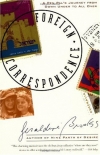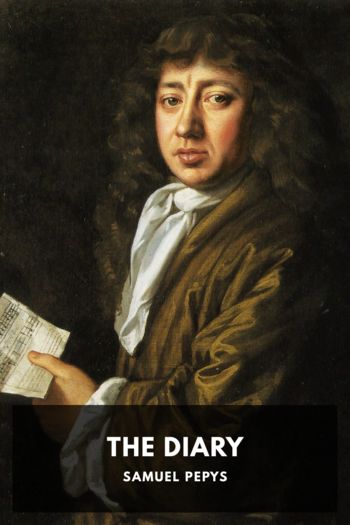Foreign Correspondence: A Pen Pal's Journey by Geraldine Brooks (finding audrey .TXT) 📗

- Author: Geraldine Brooks
Book online «Foreign Correspondence: A Pen Pal's Journey by Geraldine Brooks (finding audrey .TXT) 📗». Author Geraldine Brooks
Sonny and I had one dream in common, and that was travel. It was the dream on which all the others depended. Sonny and I were members of the last generation of Australians who grew up knowing that one day we would have to go away. For those who had ambitions, Australia in the mid-1960s looked like a very small place. The Big Trip Elsewhere was a rite of passage and a test of nerve.
Sonny and I both knew the ritual of the International Terminal where the big white liners left for overseas. We had been to the docks to see off our sisters’ friends, headed to England. The ships would carry hundreds at a time away from their country, and it seemed that thousands—the friends and families left behind—stood on the pier to say goodbye. We’d throw streamers to the travelers pressed against the railings of the departing ships. A riot of colored bands would loop from ship to shore, the travelers clutching one end, those remaining behind holding the other. Finally, the deep foghorn would groan and the ship would draw away. We sang “Auld Lang Syne” as the streamers pulled taut and finally snapped, wafting to rest for a moment, gaudy stripes on dark water, before the weight of the wet paper dragged them out of sight.
By then, the big ship would have disappeared, too, a patch of brightness passing through the Heads and away into the Pacific. It was the reverse of the First Fleet, the British ships carrying the outcasts no one wanted to the jail at the ends of the earth. In return, we sent back so many of our best—writers, scientists, actors, artists and entrepreneurs.
At the age of thirteen, Sonny already knew her destination would be London. To her, that was where culture came from, and where she would go to break into acting. At school, Gilbert and Sullivan operettas were the fodder for Abbotsleigh’s annual school concerts. At home, she watched English TV dramas such as the Forsyte Saga and comedies such as Not Only But Also.
But I had already started looking in another direction. I wanted to go to America. I had known it from the midsummer evening in January 1961, when we gathered around our television set and watched a handsome young man with tousled hair being sworn in as President of the United States.
4
Beam Me Up, Joannie
“GLO-OORIA! Glory! Glor-eeeee!”
The voice over the back fence was as irritating as a buzz saw.
“Oh, for goodness’ sakes, what does she want?” said my mother as she tilted my chin to the bright light that poured through the dining-room window. A smear of dust and blood started at my knees, blurred the front of my dress and smudged my split lip. It was a Saturday morning in 1963 and I’d just come off my backyard swing face first.
“GLORY! ARE YOU THERE? GLOR-EEEE!”
With a sigh of aggravation, my mother put down the washcloth and went out to see what her neighbor wanted. Edna, a lonely woman whose husband had deserted her, was always calling my mother for one trivial reason or another. Her voice carried through the screen door.
“Gloria, they’ve killed him. Someone’s shot Kennedy.”
Fresh tears stung my eyes and overflowed into the little runnels of dust down my cheeks. Australian Catholics loved Kennedy; we considered him one of our own. My mother hurried back inside and switched on the radio.
Kennedy’s election in 1960 turned Australia’s gaze toward the United States. The new President’s youthful glamor contrasted with our dreary old man Menzies who, by that time, had held power for eleven years. To lonely women like Edna, the conspicuously Catholic Kennedy was part saint, part pinup. Other Australians saw an idealism in him that resonated with their own sense of themselves as people of a young country. I was enthralled by a President prepared to imagine a place for human beings in space.
By the early 1960s even a sycophantic Anglophile like Menzies could see that Australia’s future didn’t lie entirely in its links to a tiny island across the world. Menzies saw an advantage in aligning himself with the popular American President. He listened to the urgings of Australia’s chief diplomat in Washington, D.C., when he cabled that we could “without disproportionate expenditure pick up a lot of credit with the United States” by helping Kennedy in Vietnam.
My father’s American-accented voice was one of the few raised against Australia’s shift from British to American client state. “We don’t need to get mixed up in a blue because of the Yanks,” he said. (A “blue” is Australian slang for a fight.) “And we don’t need Yank materialism shoved down our throats.”
Most Australians saw nothing wrong with the new influences. We called Americans “Septics”—in rhyming slang, septic tank equals Yank. But there was no malice in the name. Americans, in most Australians’ view, were a bit like golden retriever puppies—well-intentioned, good-humored, but a little thick. Many Australians had brushed up against them during World War II, when they took rest and recreation leave in Australian cities. There had been some blues over competition for women—the saying “Overpaid, oversexed and over here” reflected the view of the Aussie “Diggers,” whose miserable army pay couldn’t underwrite the free-spending good times the Americans showed their dates. But there were also lots of jokes about American ineptness, like the G.I. who showed up for a date with a lovely bunch of lantana—considered a noxious weed in Australia and most often seen covering country outhouses.
Slowly, American syndicated columnists began to leaven the British drone in our newspapers. In 1966 we shed the ridiculous complexity of the twelvepence-a-shilling, twenty-shillings-a-pound currency we’d inherited from Britain, and adopted a decimal system. While a few brave voices called for an indigenous Australian name for the new hundred-unit note, we settled for American-style dollars and cents. I walked around the house humming the





Comments (0)